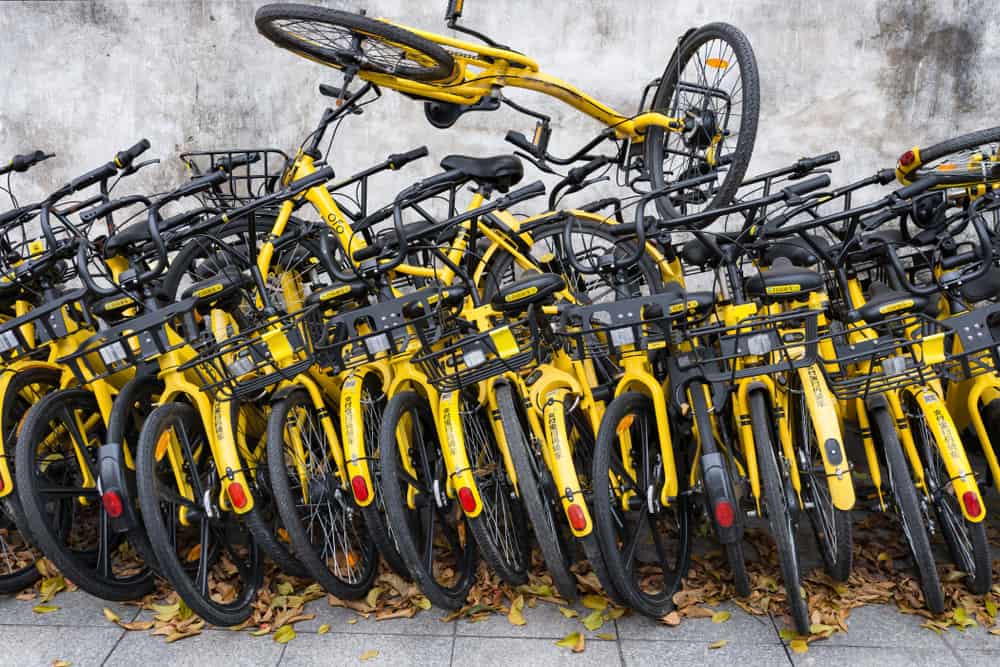
Over the last few months, Uber Inc. has been on the path of extending its services to different domains, of which the electric bike-sharing business looks to be a primary focal point. In April, Uber acquired bike-share startup Jump for nearly $200 million, getting a foot on the door and launching itself as a major player in the space. Jump had been doing very well at the time of its acquisition, and now has a presence in places like New York, Austin, San Francisco, Chicago, and Washington DC.
In July, Uber went further in the scooter vertical by investing in Lime in its $335 million financing round, which valued the company at $1.1 billion. Dara Khosrowshahi, the CEO of Uber has been bullish on the company’s plans to expand on the electric bike-sharing business, as it was evident that Uber had to take the route to sustain itself in the longer run – especially in densely populated urban areas.
“Half the world’s population lives in urban centers, and that is going to go to two-thirds of the world’s population. But no city wants more cars as cities would not be able to come up with the infrastructure required to satisfy demand of all these cars,” said Khosrowshahi. He further went on to insist that short distance travel in urban areas would radically change over the next decade, with the advent of electric bike-sharing.
Uber eyes the bike-sharing segment as a predatory vertical to its taxi-sharing business, as studies suggest that Uber cab trips have fallen by 10% since February this year in San Francisco, as bike-sharing companies reportedly eat into its market. With companies like Lyft giving it stiff competition, and Waymo surging ahead in the autonomous car race, it does not come as a surprise that Uber is thinking of diversifying its portfolio.
However, in the rat race to capture the market, electric bike-sharing companies in the U.S. might inadvertently make the mistake that Chinese bike-sharing companies did a few years back – crowd cities with bikes that run into the hundreds of thousands, outnumbering the people who use them. That being said, though the bike-sharing startups in China worked with conventional pedal-type bikes and not the electric variants, the premise behind the observation does remain the same.
Billions were poured into Chinese bike-sharing startups, with the likes of Tencent, Alibaba, and Didi Chuxing actively participating in the funding rounds. This led to the industry outgrowing its user base in quick time, ending up imploding under the weight of an unsustainable business model, leading to several companies going bankrupt.
One of the major issues that the industry stumbled on was bike storage and maintenance. With the intent of making the process of renting bikes easy, companies began to offer dockless bike storage systems, which essentially meant that renters could park the bikes at designated parking spots after use.
Though this looks good on paper, companies had to contend with excessive use of these spots, as people kept dumping bikes one over the other. A nightmarish scenario unfolded, especially around public transportation centers like metro stations, and bus terminuses.
Maintaining and servicing the vehicles were a hassle as well, as rough usage left the bikes with much damage. As bikes were left broken, companies realized it was easier to produce new bikes rather than address broken ones – going categorically against the sustainability perspective that the concept of bike-sharing was built on. The other issue was with criminal activity and bike vandalism, which proved to be a massive problem incurring heavy losses for companies.
Coming to the U.S., the electric bike-sharing company that Uber has now acquired does offer dockless bike storage, which certain reports suggest to already clog the sidewalks of New York – a situation comparable to that of China.
The onus is on Uber and other bike-sharing companies to take stock of the symptoms as they unfold. Exercising caution is paramount, and they need to work on a rational way of expansion, as dumping the streets with bikes for easy availability would make the environment caustic for everyone. China having experimented with the bike-sharing concept has sustained colossal losses, and it is time for the U.S. companies to learn from the debacle and tread the waters carefully.
Stay up-to-date with the latest commentary and insights on FreightTech and the impact to the markets by subscribing.







